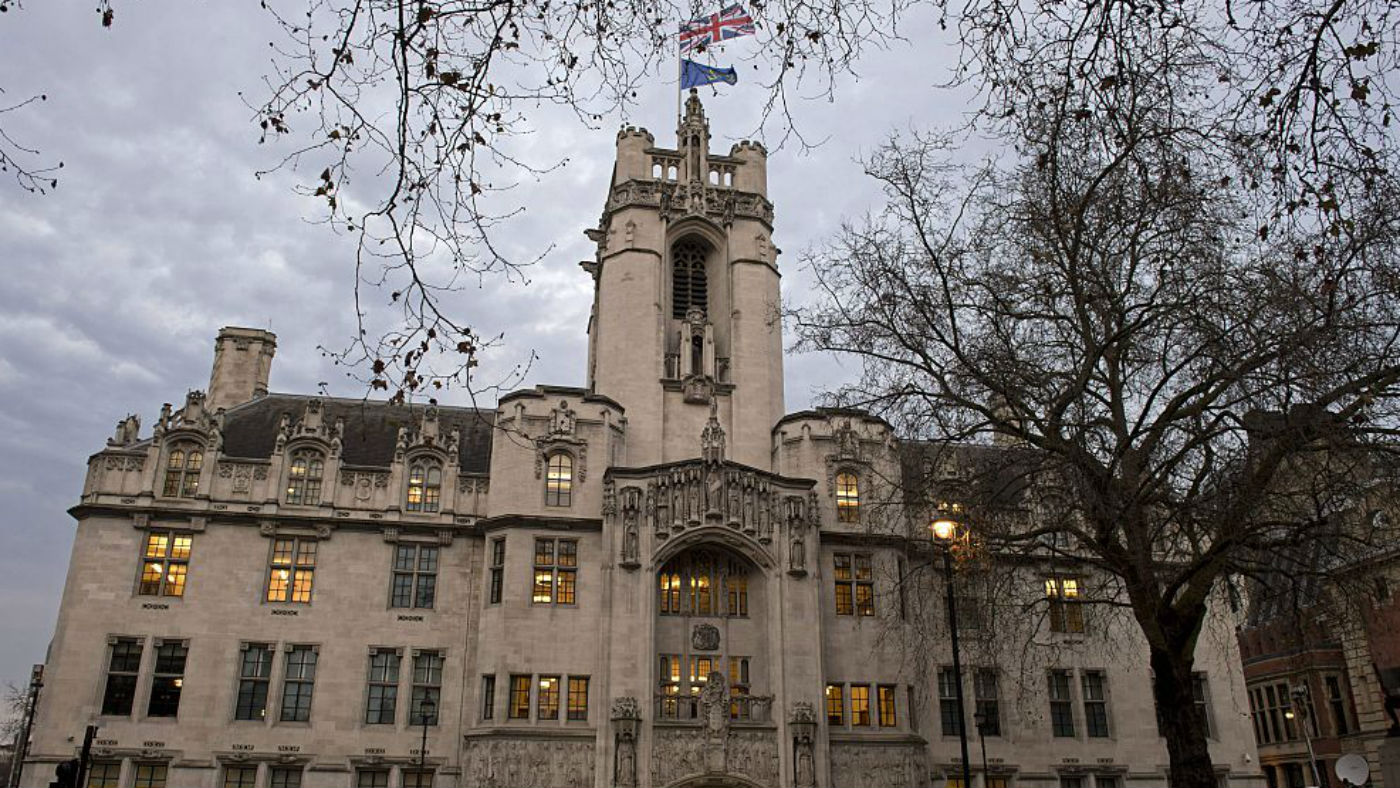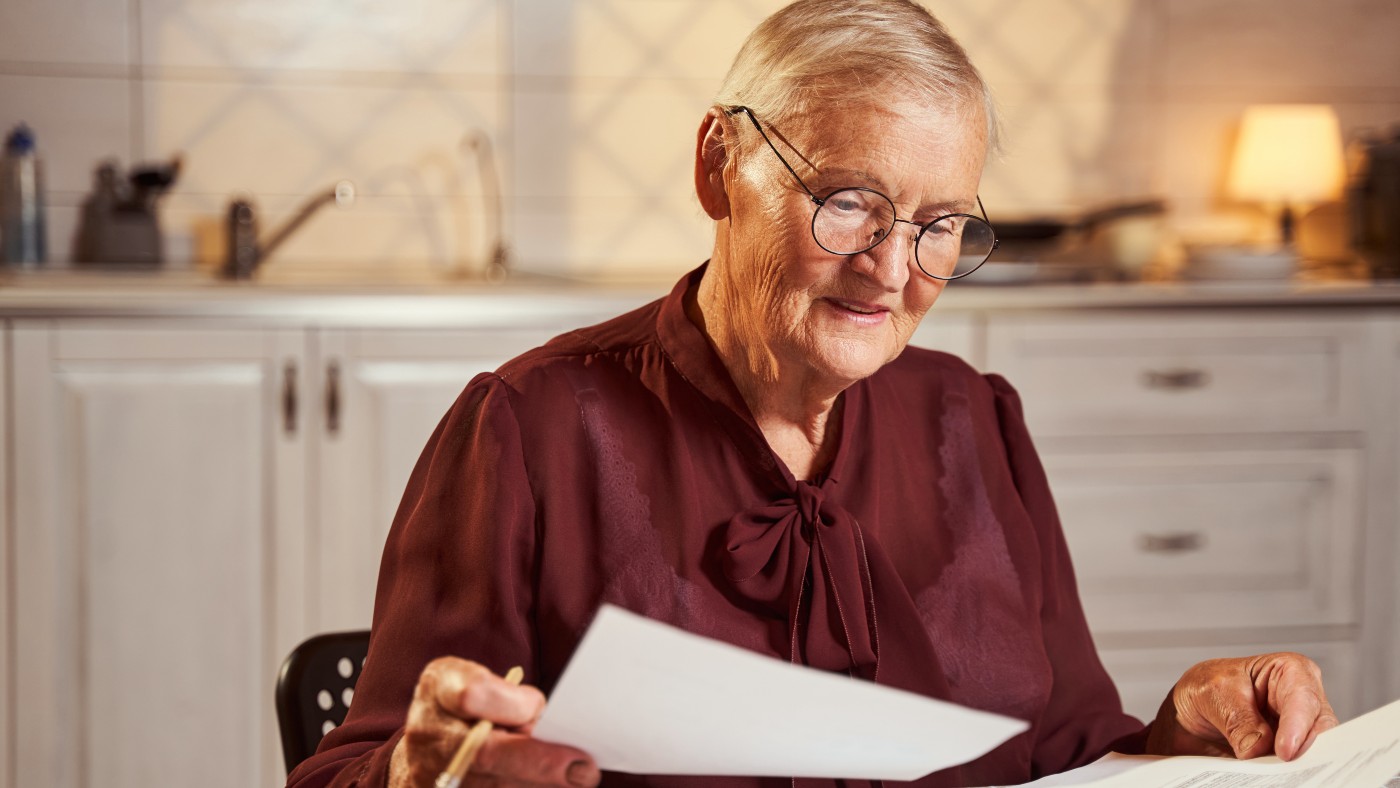Unmarried woman wins right to partner's pension
Case could have implications for co-habiting couples working across the public sector

A free daily email with the biggest news stories of the day – and the best features from TheWeek.com
You are now subscribed
Your newsletter sign-up was successful
An unmarried woman has won the right to her late partner's pension in a Supreme Court ruling that could "improve the pension rights of millions of unmarried couples across the UK", says the Daily Telegraph.
The case "was closely watched" by pension schemes which could now change their rules, says the BBC.
Denise Brewster and Lenny Mullan, who worked for the Northern Ireland public transport service Translink for 15 years, had been together for a decade when he died suddenly on Boxing Day in 2009.
The Week
Escape your echo chamber. Get the facts behind the news, plus analysis from multiple perspectives.

Sign up for The Week's Free Newsletters
From our morning news briefing to a weekly Good News Newsletter, get the best of The Week delivered directly to your inbox.
From our morning news briefing to a weekly Good News Newsletter, get the best of The Week delivered directly to your inbox.
The couple had got engaged just two days earlier – but as they were not married, and Brewster had not been formally nominated for survivor's benefits as required under the scheme's rules, Brewster, who is in her early 40s, was denied any allowance.
Following a seven-year legal battle, the Supreme Court unanimously ruled she was nonetheless entitled to receive payments, saying the nomination form amounted to "unlawful discrimination".
Unmarried partners are typically required to fill in a form in order to receive benefits across the public sector – and even some private sector – pension schemes.
The case could have implications for the rights of co-habiting couples working in the public sector, including nurses, teachers, civil servants and police.
A free daily email with the biggest news stories of the day – and the best features from TheWeek.com
However, "it is still unclear whether this would lead to any retrospective change in the rules", says the BBC's Simon Gompertz.
Nicola Waldman, a private client partner at the law firm Hodge Jones & Allen, thinks the court ruling could prompt more cases of this kind that could affect the tax system more broadly.
"What is particularly interesting about this case is whether it will spark fresh legal challenges in other areas of perceived discrimination against cohabiting couples, including inheritance tax and capital gains tax," Waldman said.
-
 Political cartoons for February 22
Political cartoons for February 22Cartoons Sunday’s political cartoons include Black history month, bloodsuckers, and more
-
 The mystery of flight MH370
The mystery of flight MH370The Explainer In 2014, the passenger plane vanished without trace. Twelve years on, a new operation is under way to find the wreckage of the doomed airliner
-
 5 royally funny cartoons about the former prince Andrew’s arrest
5 royally funny cartoons about the former prince Andrew’s arrestCartoons Artists take on falling from grace, kingly manners, and more
-
 Six ways to boost your finances in 2026
Six ways to boost your finances in 2026The Explainer It’s not too late to make a new year’s resolution to finally get organised money-wise
-
 The financial impact of returning to work in later life – should you 'unretire'?
The financial impact of returning to work in later life – should you 'unretire'?The Explainer Many people return to the workplace after retirement age, but what could it mean for your finances?
-
 State pension underpayments: are you getting the right amount?
State pension underpayments: are you getting the right amount?feature Hundreds of thousands of women may have received less than they were owed
-
 Early retirement: what is the ‘FIRE’ movement?
Early retirement: what is the ‘FIRE’ movement?feature Younger workers are aiming to quit the workforce early through extreme saving and investment
-
 How women can bridge the gender pension gap
How women can bridge the gender pension gapIn Depth New figures have shown the extent of the problem for women in retirement years
-
 How to plug the pension gap by buying National Insurance credits
How to plug the pension gap by buying National Insurance creditsfeature A temporary change in the state pension offers a ‘golden opportunity’
-
 Are UK pensions safe?
Are UK pensions safe?Today's Big Question Bank of England governor says its debt market support must end – but the multi-billion-pound scheme could be extended
-
 Pensions: time to end the triple lock?
Pensions: time to end the triple lock?In the Spotlight Ministers must decide whether to risk alienating older voters by ending guaranteed pension rises